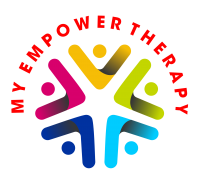Top 7 Signs Your Toddler May Need Occupational Therapy
As a parent, you know your toddler better than anyone. You’re tuned into their daily moods, routines, and little quirks. But sometimes, certain patterns—things that may seem like “just a phase” can be early signs that your child needs extra support. This is where occupational therapy (OT) comes in.
Occupational therapy helps children develop the skills they need to grow, learn, play, and interact with the world around them. While it’s commonly associated with physical movement, OT also supports emotional regulation, social development, sensory processing, and daily living skills.
So how do you know if it’s time to explore OT for your toddler? Here are 7 important signs to watch for.
- Poor Motor Skills
If your toddler struggles with things like holding a crayon, stacking blocks, feeding themselves, or walking without falling often, it could be a sign of motor delays. These activities require coordination and strength, and an occupational therapist can help build both.
What to look for:
- Trouble grasping toys or utensils
- Difficulty sitting upright or climbing
- Frequent bumping into objects or tripping
- Challenges with Transitions
Some toddlers resist change more than others, but if your child has extreme meltdowns when switching activities, entering new environments, or stopping preferred tasks, it may be a regulation issue.
What to look for:
- Daily tantrums when routines shift
- Refusal to leave places (like daycare or the playground)
- Overwhelming anxiety with changes in schedule
- Sensitivity to Stimuli
Is your child unusually reactive to light, sound, touch, or textures? Sensory processing challenges can make daily life uncomfortable and overwhelming for a toddler.
What to look for:
- Covering ears to block out sound
- Refusing to wear certain clothes due to the fabric
- Avoiding messy play like finger painting or sand
An occupational therapist trained in sensory integration can work wonders here.
- Limited Play Skills
Play is how children learn about the world. If your toddler doesn’t seem to know how to play—or rarely plays with toys in typical ways—it could signal a delay in cognitive or social-emotional development.
What to look for:
- Engaging in repetitive self-stimulation behaviors like hand flapping or spinning wheels
- Lack of interest in pretend play
- Repetitive or overly solitary play
- Language Delays
While speech therapy addresses communication directly, occupational therapy can support the underlying sensory or motor coordination issues that affect speech. If your child struggles with both language and attention or coordination, OT can help.
What to look for:
- Not using words or gestures to communicate
- Difficulty following simple instructions
- Frustration or tantrums when trying to express needs
- Sleep Problems
Believe it or not, OT can also help improve sleep! Many sleep issues stem from sensory dysregulation or poor body awareness—both of which occupational therapy can address.
What to look for:
- Trouble falling or staying asleep
- Restlessness during sleep
- Needing excessive help to fall asleep or stay calm in bed
- Delayed Independence
Toddlers are just beginning to do things on their own—feeding, dressing, washing hands. If your child is far behind in these basic self-care skills, an occupational therapist can break down the tasks and teach them in manageable steps.
What to look for:
- Difficulty holding a spoon or drinking from a cup
- Not helping with dressing (e.g., pulling pants up)
- Avoiding tasks that require effort or precision
When Should You Seek Help?
Not every child who shows one of these signs needs occupational therapy—but if you notice several of these signs consistently over time, trust your gut. It’s always better to evaluate early than to “wait and see.”
You can start by:
- Speaking to your pediatrician
- Requesting a developmental screening
- Reaching out directly to an occupational therapist for an assessment
Final Thoughts
Every child develops at their own pace, and small challenges are part of growing up. But when those challenges start to affect your child’s daily function, confidence, or happiness, it’s worth asking if support like occupational therapy can help.
At My Empower Therapy, we specialize in early intervention and personalized care. If you’re wondering whether your toddler may benefit from OT, we’re here to guide you every step of the way—with compassion, expertise, and a whole lot of play.









